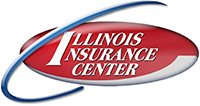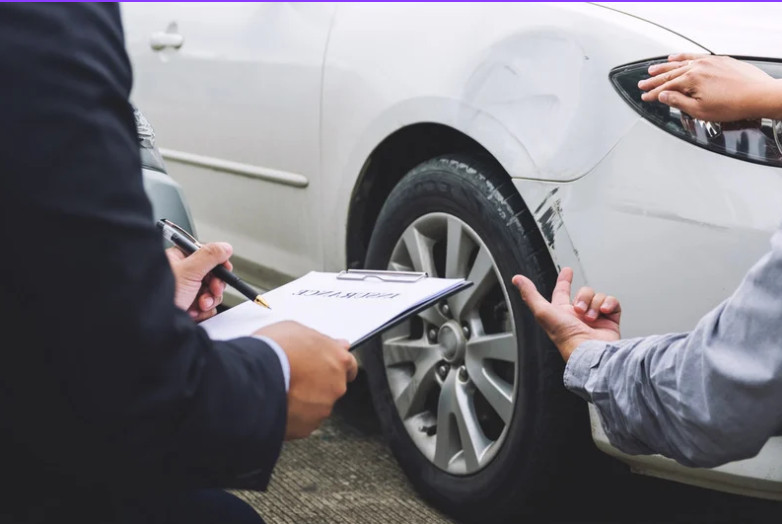Getting behind the wheel in Illinois means understanding your state’s Illinois vehicle car insurance requirements. Whether you’re a new driver or simply shopping for better coverage, knowing what protections you need can save you money and headaches down the road. Illinois Insurance Center helps drivers across the state find the right coverage at competitive rates.
Understanding Illinois Vehicle Car Insurance Requirements
Illinois law requires all drivers to carry minimum liability coverage. However, these minimums might not provide enough protection for your specific situation. The state mandates $25,000 per person for bodily injury, $50,000 per accident for bodily injury, and $20,000 for property damage. Additionally, Illinois requires uninsured motorist coverage matching your liability limits.
Many drivers assume these minimums offer adequate protection. Unfortunately, medical bills and vehicle repairs often exceed these amounts. Furthermore, if you cause a serious accident, you could face personal financial responsibility for costs beyond your policy limits. Therefore, many insurance professionals recommend higher coverage levels to protect your assets and future earnings.
Essential Coverage Types for Your Illinois Vehicle Car Insurance
Liability Coverage
Liability coverage forms the foundation of your Illinois vehicle car insurance policy. This protection covers damages you cause to other people and their property. Moreover, it handles legal costs if someone sues you after an accident. While Illinois sets minimum requirements, considering higher limits protects you better.
Bodily injury liability pays for medical expenses, lost wages, and pain and suffering for injured parties. Property damage liability covers repairs to other vehicles, buildings, or structures you might damage. Since accidents can result in expensive claims, adequate liability coverage prevents financial disaster.
Comprehensive and Collision Coverage
Though Illinois doesn’t require comprehensive and collision coverage, most drivers benefit from these protections. Collision coverage pays for damage to your vehicle after accidents, regardless of who’s at fault. Comprehensive coverage protects against theft, vandalism, weather damage, and animal strikes.
If you’re financing or leasing your vehicle, your lender typically requires both coverages. Even if you own your car outright, these coverages can save thousands in repair or replacement costs. Newer or more valuable vehicles especially benefit from comprehensive and collision protection.
Uninsured and Underinsured Motorist Coverage
Illinois requires uninsured motorist coverage, but many drivers don’t understand its importance. This protection covers your medical expenses and vehicle damage when an at-fault driver lacks insurance. Additionally, underinsured motorist coverage helps when the other driver’s insurance isn’t enough to cover your damages.
Statistics show that many drivers carry only minimum coverage or drive without insurance entirely. Therefore, uninsured and underinsured motorist coverage becomes your safety net. This protection ensures you’re not left paying out-of-pocket for someone else’s mistake.
Factors Affecting Your Illinois Vehicle Car Insurance Rates
Personal Demographics and Driving History
Insurance companies consider multiple factors when calculating your Illinois vehicle car insurance premiums. Your age, gender, marital status, and credit score all influence rates. Additionally, your driving record plays a significant role in pricing decisions.
Young drivers typically pay higher premiums due to inexperience and higher accident rates. However, rates generally decrease as you gain experience and maintain a clean driving record. Furthermore, completing defensive driving courses can sometimes earn discounts on your premium.
Vehicle-Related Factors
The type of vehicle you drive significantly impacts your insurance costs. Sports cars and luxury vehicles typically cost more to insure due to higher repair costs and theft rates. Conversely, vehicles with strong safety ratings and anti-theft features often qualify for discounts.
Your vehicle’s age also affects pricing. Newer cars might cost more to repair but often include advanced safety features that reduce accident risk. Older vehicles might have lower comprehensive and collision coverage needs but could lack modern safety equipment.
Geographic Considerations
Where you live and park your vehicle influences your insurance rates. Urban areas typically have higher rates due to increased accident frequency, theft rates, and vandalism. Rural areas might have lower crime rates but could face higher rates due to longer emergency response times.
Illinois Insurance Center serves drivers throughout the state, understanding local factors that affect pricing. We help drivers in various areas we serve find competitive rates based on their specific locations and needs.
Special Considerations for Different Driver Types
Commercial Vehicle Coverage
Business owners using vehicles for work need specialized coverage beyond personal auto insurance. Commercial auto insurance provides higher liability limits and covers business-related vehicle use that personal policies exclude.
Companies operating multiple vehicles might benefit from fleet policies that offer better rates and streamlined management. Furthermore, businesses transporting goods or passengers need specialized protections. Commercial truck insurance addresses unique risks faced by trucking operations.
Rideshare Drivers
Drivers working for companies like Uber or Lyft need special consideration for their Illinois vehicle car insurance needs. Personal auto policies typically exclude coverage while driving for commercial purposes. Therefore, rideshare driver insurance fills gaps between personal coverage and the rideshare company’s policy.
This specialized coverage activates when you’re available for rides but haven’t accepted a passenger yet. Additionally, it provides protection if the rideshare company’s coverage proves insufficient after an accident.
Motorcycle Enthusiasts
Motorcycle riders face unique risks requiring specialized protection. Motorcycle insurance addresses these specific needs while meeting Illinois legal requirements. Riders face higher injury risks due to limited protection compared to enclosed vehicles.
Comprehensive coverage becomes especially important for motorcycles due to theft risk and weather exposure. Additionally, custom parts and equipment coverage protects modifications and accessories that standard policies might not cover.
Understanding High-Risk Situations and SR-22 Requirements
Some drivers face higher insurance costs due to violations or accidents. Illinois requires certain drivers to file SR-22 forms proving they maintain required coverage. This filing becomes necessary after DUI convictions, serious traffic violations, or driving without insurance.
SR-22 requirements typically last three years, during which you must maintain continuous coverage. Any lapse in coverage requires your insurance company to notify the state, potentially resulting in license suspension. Therefore, working with an experienced agent helps ensure compliance and avoid additional penalties.
The SR-22 itself doesn’t cost much, but violations leading to this requirement often result in higher insurance premiums. However, maintaining clean driving records during the filing period can gradually reduce rates over time.
Money-Saving Strategies for Illinois Vehicle Car Insurance
Available Discounts
Most insurance companies offer various discounts that can significantly reduce your premiums. Multi-policy discounts apply when you combine auto coverage with homeowners insurance or other policies. Safe driver discounts reward clean driving records with reduced rates.
Student discounts help young drivers offset higher premiums by maintaining good grades. Additionally, defensive driving course discounts encourage continued education about safe driving practices. Vehicle safety features like anti-lock brakes, airbags, and anti-theft systems often qualify for additional savings.
Comparing Coverage Options
Shopping around for Illinois vehicle car insurance helps ensure you’re getting competitive rates. However, comparing policies requires more than just looking at premiums. Coverage limits, deductibles, and company financial strength all matter when choosing protection.
Working with an independent agent provides access to multiple insurance companies without the hassle of contacting each one individually. This approach saves time while ensuring you see various options and pricing structures.
Adjusting Deductibles and Coverage Limits
Raising deductibles can lower your premiums, but make sure you can afford the out-of-pocket costs after an accident. Conversely, lowering deductibles increases premiums but reduces your financial responsibility when filing claims.
Reviewing coverage limits annually ensures your protection keeps pace with your financial situation. As your assets grow, you might need higher liability limits. Alternatively, older vehicles might not justify comprehensive and collision coverage if repair costs exceed the vehicle’s value.
Special Coverage Situations
Mexico Travel Coverage
Drivers planning trips to Mexico need specialized protection since U.S. auto policies typically don’t provide coverage there. Mexico auto insurance becomes mandatory for legal driving south of the border and provides protection against unique risks.
Mexican law requires liability coverage, and without proper insurance, accidents can result in serious legal consequences. Short-term policies are available for vacation trips, while annual coverage suits frequent travelers.
Life Insurance Considerations
While not directly related to vehicle insurance, life insurance becomes important for families depending on drivers for financial support. Accidents can have devastating financial consequences beyond property damage and medical bills.
Term life insurance provides affordable protection during peak earning years. Additionally, permanent life insurance builds cash value while providing lifelong protection. Combining auto and life insurance often results in multi-policy discounts.
Filing Claims and Working with Your Insurance Company
Understanding the claims process helps ensure smooth resolution after accidents. First, prioritize safety by moving vehicles out of traffic when possible and checking for injuries. Then, document the scene with photos and gather contact information from all parties involved.
Contact your insurance company promptly to report the accident. Most insurers offer 24-hour claim reporting through phone apps or websites. Provide honest, factual information about what happened without admitting fault or speculating about causes.
Keep records of all communications with your insurance company, including claim numbers and adjuster contact information. Additionally, save receipts for expenses related to the accident, such as towing costs or rental vehicle fees.
Working with Illinois Insurance Center
Choosing the right insurance partner makes a significant difference in your experience and protection level. Illinois Insurance Center combines local knowledge with access to multiple insurance companies, ensuring competitive rates and appropriate coverage.
Our experienced agents understand Illinois insurance requirements and can explain complex coverage options in plain English. Furthermore, we provide ongoing support throughout the policy period, helping with claims and coverage adjustments as your needs change.
Don’t wait until you need coverage to start shopping. Contact Illinois Insurance Center at (708) 524-4900 or visit our contact page to discuss your Illinois vehicle car insurance needs. We’ll help you find the right protection at competitive rates.
Frequently Asked Questions
What’s the minimum Illinois vehicle car insurance required by law? Illinois requires $25,000 per person for bodily injury, $50,000 per accident for bodily injury, $20,000 for property damage, and matching uninsured motorist coverage. However, these minimums might not provide adequate protection for serious accidents.
How much does car insurance typically cost in Illinois? Illinois vehicle car insurance costs vary widely based on factors like age, driving record, vehicle type, and location. Urban drivers typically pay more than rural drivers due to higher accident and theft rates. Getting quotes from multiple companies helps find competitive rates.
Do I need comprehensive and collision coverage in Illinois? While Illinois doesn’t require comprehensive and collision coverage, lenders typically mandate both for financed or leased vehicles. Even for owned vehicles, these coverages protect against expensive repair or replacement costs after accidents or other covered events.
What happens if I drive without insurance in Illinois? Driving without required insurance in Illinois can result in fines, license suspension, and vehicle impoundment. Additionally, you’ll be personally responsible for damages you cause in accidents. Repeat offenses carry increasingly severe penalties.
How can I lower my illinois vehicle car insurance premiums? Several strategies can reduce premiums, including maintaining clean driving records, combining policies for multi-policy discounts, increasing deductibles, and taking defensive driving courses. Additionally, shopping around regularly helps ensure competitive rates.
What’s an SR-22 and when do I need one? An SR-22 is a form proving you maintain required insurance coverage. Illinois requires SR-22 filing after certain violations like DUI convictions or driving without insurance. The filing requirement typically lasts three years with continuous coverage mandatory.
Does my personal auto insurance cover business use? Personal auto policies typically exclude coverage for business use beyond commuting to work. Commercial activities require specialized coverage to ensure protection while conducting business activities with your vehicle.
What should I do immediately after a car accident? Prioritize safety by moving vehicles out of traffic when possible and checking for injuries. Document the scene with photos, gather contact information, and report the accident to your insurance company promptly. Avoid admitting fault or discussing details beyond basic facts.
How does my credit score affect my car insurance rates? Most insurance companies use credit scores as one factor in determining premiums. Better credit scores typically result in lower rates, while poor credit can increase costs. However, the impact varies between companies and some states limit credit score usage.
Can I get car insurance with a suspended license? Getting traditional auto insurance with a suspended license is challenging since you can’t legally drive. However, some companies offer non-owner policies for maintaining continuous coverage during suspension periods, which can help when reinstating your license.
Bottom Line
Illinois vehicle car insurance requirements exist to protect all drivers, but minimum coverage might not provide adequate protection for your situation. Understanding your options and working with experienced professionals helps ensure you get appropriate coverage at competitive rates. Illinois Insurance Center stands ready to help you navigate these important decisions and find protection that fits your needs and budget. Don’t wait until after an accident to discover coverage gaps – contact us today to review your current protection and explore better options.





